Related Research Articles

Romania is a country located at the crossroads of Central, Eastern and Southeastern Europe. It borders Ukraine to the north and east, Hungary to the west, Serbia to the southwest, Bulgaria to the south, Moldova to the east, and the Black Sea to the southeast. It has a predominantly continental climate, and an area of 238,397 km2 (92,046 sq mi) with a population of 19 million people (2023). Romania is the twelfth-largest country in Europe and the sixth-most populous member state of the European Union. Its capital and largest city is Bucharest, followed by Cluj-Napoca, Iași, Timișoara, Constanța, Craiova, Brașov, and Galați.
The Romanian state was formed in 1859 through a personal union of the Danubian Principalities of Moldavia and Wallachia. The new state, officially named Romania since 1866, gained independence from the Ottoman Empire in 1877. During World War I, after declaring its neutrality in 1914, Romania fought together with the Allied Powers from 1916. In the aftermath of the war, Bukovina, Bessarabia, Transylvania, and parts of Banat, Crișana, and Maramureș became part of the Kingdom of Romania. In June–August 1940, as a consequence of the Molotov–Ribbentrop Pact and Second Vienna Award, Romania was compelled to cede Bessarabia and Northern Bukovina to the Soviet Union and Northern Transylvania to Hungary. In November 1940, Romania signed the Tripartite Pact and, consequently, in June 1941 entered World War II on the Axis side, fighting against the Soviet Union until August 1944, when it joined the Allies and recovered Northern Transylvania.

Ferdinand I, nicknamed Întregitorul, was King of Romania from 1914 until his death in 1927. Ferdinand was the second son of Leopold, Prince of Hohenzollern, and Infanta Antónia of Portugal, daughter of Ferdinand II of Portugal and Maria II of Portugal. His family was part of the Catholic branch of the Prussian royal family Hohenzollern.

Nicolae Rădescu was a Romanian army officer and political figure. He was the last pre-communist rule Prime Minister of Romania, serving from 7 December 1944 to 1 March 1945.

Lucian Blaga was a Romanian philosopher, poet, playwright, poetry translator and novelist. He was a commanding personality of the Romanian culture of the interbellum period.
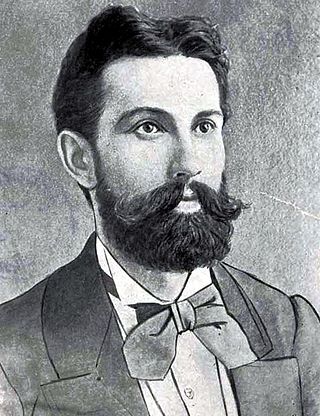
Nicolae Densușianu was a Romanian ethnologist and collector of Romanian folklore. He was a corresponding member of the Romanian Academy, with a specialty in history. His main work, for which he is chiefly remembered, was the posthumously printed Dacia Preistorică (1913), with a preface contributed by C. I. Istrati; a facsimile edition was published in 2002 by Editura Arhetip, Bucharest. In Dacia Preistorică Densușianu combined the studies of folklore and comparative religion with archaeology to construct a theory about the Prehistoric cultures of Dacia. The work has drawn criticism for unprofessionalism and evidence of nationalism, and for standing at the source of Dacianism. Mainstream scholars regarded his book as fanciful and unscientific.
Alina Mungiu-Pippidi is a Romanian political scientist, academic, journalist and writer. She currently holds the professorship of Comparative Public Policy at the Department of Political Science of LUISS Guido Carli in Rome. She also chairs the multi-site European Research Centre for Anticorruption and State-Building (ERCAS) and is Academic Coordinator of BridgeGap, an EU Horizon research project. Alina Mungiu-Pippidi also holds the honorary presidency of Romanian Academic Society. She also consults for various governments and international organizations and contributed work for the European Parliament as principal investigator on ‘clean trade’, the Swedish Government on effectiveness of good governance assistance programs, the EU Dutch Presidency on trust and public integrity in EU-28, for the European Commission DG Research on governance innovation, for the World Bank Development Report and the International Monetary Fund, among others.
Paul Goma was a Romanian writer, known for his activities as a dissident and leading opponent of the communist regime before 1989. Forced into exile by the communist authorities, he became a political refugee and resided in France as a stateless person. After 2000, Goma expressed opinions on World War II, the Holocaust in Romania and the Jews, claims which have led to widespread allegations of antisemitism.
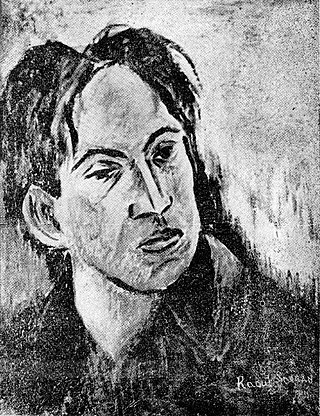
Raoul Șorban was a Romanian painter, journalist, writer, essayist, art historian, academic, and memoirist.
Freemasonry in Romania traces its origins to the 18th century. Following an intricate history, all organised Freemasonry in the country ceased during the Communist era, although some lodges continued to operate in exile overseas. Freemasonry returned to Romania in the 1990s.
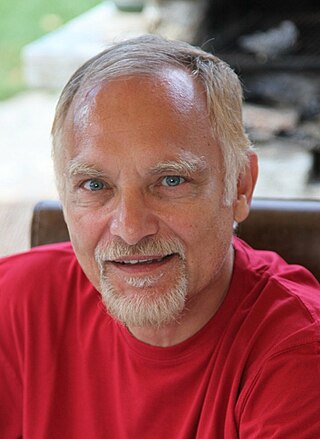
Virgil Mihaiu is a Romanian writer, jazz critic, diplomat, jazz aesthetics professor, polyglot, and performer. He was co-founder and the first director of the Romanian Cultural Institute in Lisbon, and served as minister-counselor at the Romanian embassy in Portugal. Since 2015 he is director of the Casa do Brasil / Brazilian Cultural Centre, as well as the Biblioteca de Estudios Latinoamericanos, both institutions functioning under the aegis of Cluj's principal University.

Christian Tămaș is a Romanian writer, translator, essayist, arts and humanities researcher.
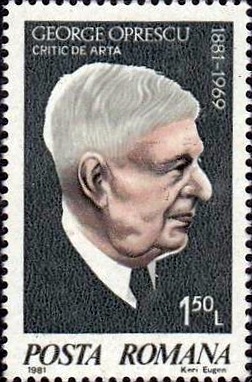
George Oprescu was a Romanian historian, art critic and collector. Born into a poor family, he developed a taste for the fine arts early in life, as well as for the French language, which he taught into his forties. Subsequently, working for the League of Nations, he turned his attention to art history, becoming a professor in the field at the University of Bucharest in 1931. He was also a museum curator and magazine editor, and in 1949 established the Institute of Art History, which he led for two decades until his death. His substantial private collection is now in the hands of various institutions, while his written body of work helped lay the foundation for art history to become a serious discipline in his country.
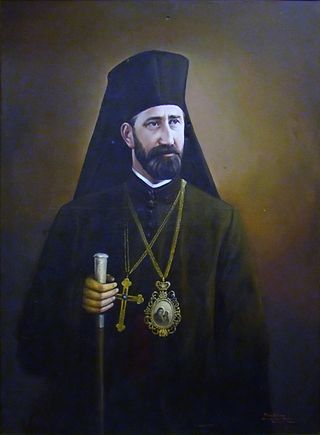
Nicolae Colan was an Austro-Hungarian-born Romanian cleric, a metropolitan bishop of the Romanian Orthodox Church. From a peasant background, Colan completed high school in Brașov, followed by a period of wandering during World War I that saw him in Sibiu, Bucharest, Moldavia, Ukraine and ultimately Bessarabia, where he advocated union with Romania. After the war, he completed university and taught New Testament theology at Sibiu from 1924 to 1936. Entering the clergy in 1934, he soon became bishop at Cluj, remaining there when Northern Transylvania temporarily became Hungarian territory during World War II. In 1957, he advanced to Metropolitan of Transylvania, an office he held for the final decade of his life.

Traian Bratu was an Austro-Hungarian-born Romanian scholar of German language and literature. A native of the Mărginimea Sibiului region in present-day Sibiu County, southern Transylvania, he left for the Romanian Old Kingdom, where he attended university, followed up by a doctorate at the University of Berlin.
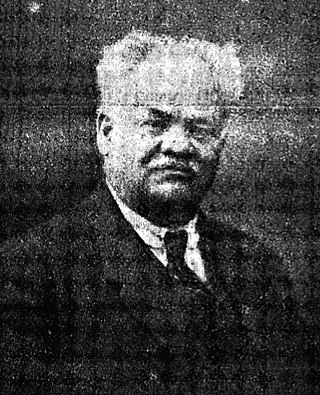
Gheorghe Bogdan-Duică was an Imperial Austrian-born Romanian literary critic. The son of a poor merchant family from Brașov, he attended several universities before launching a career as a critic, first in his native town and then in Czernowitz. Eventually settling in Bucharest, capital of the Romanian Old Kingdom, he managed to earn a university degree before teaching at a succession of high schools. Meanwhile, he continued publishing literary studies as well as intensifying an ardently nationalistic, Pan-Romanian activism. He urged the Romanian government to drop its neutrality policy and enter World War I; once this took place and his adopted home came under German occupation, he found himself arrested and deported to Bulgaria. After the war's conclusion and the union of Transylvania with Romania, he became a literature professor at the newly founded Cluj University. There, he served as rector in the late 1920s, but found himself increasingly out of touch with modern trends in literature.
Vlaicu Victor Virgil Bârna was an Austro-Hungarian-born Romanian poet.
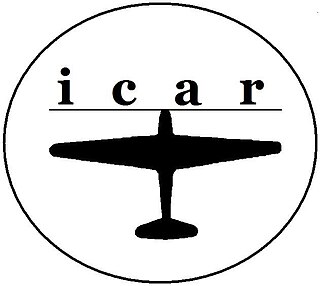
Întreprinderea de Construcții Aeronautice Românești, was a Romanian aircraft manufacturer. The company produced aircraft of its own design and under license.

Ion Chinezu was an Austro-Hungarian-born Romanian literary critic and translator.

Ștefan Cicio Pop was a Romanian politician.
References
- ↑ "Giovenale Vegezzi Ruscalla - Enciclopedia României - prima enciclopedie online despre România" (in Romanian). Enciclopediaromaniei.ro. 2012-02-17. Retrieved 2012-06-08.